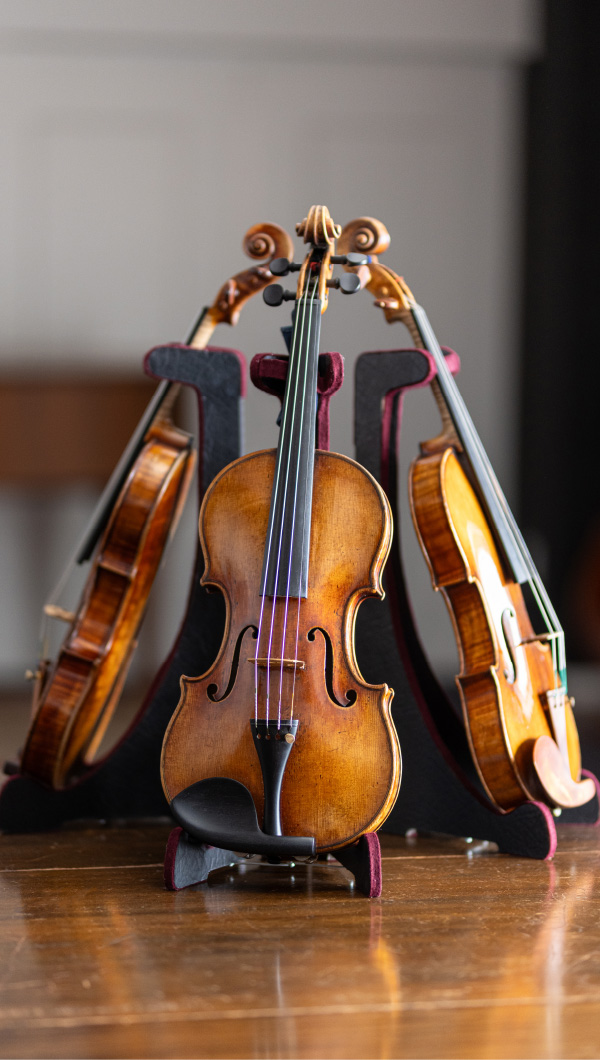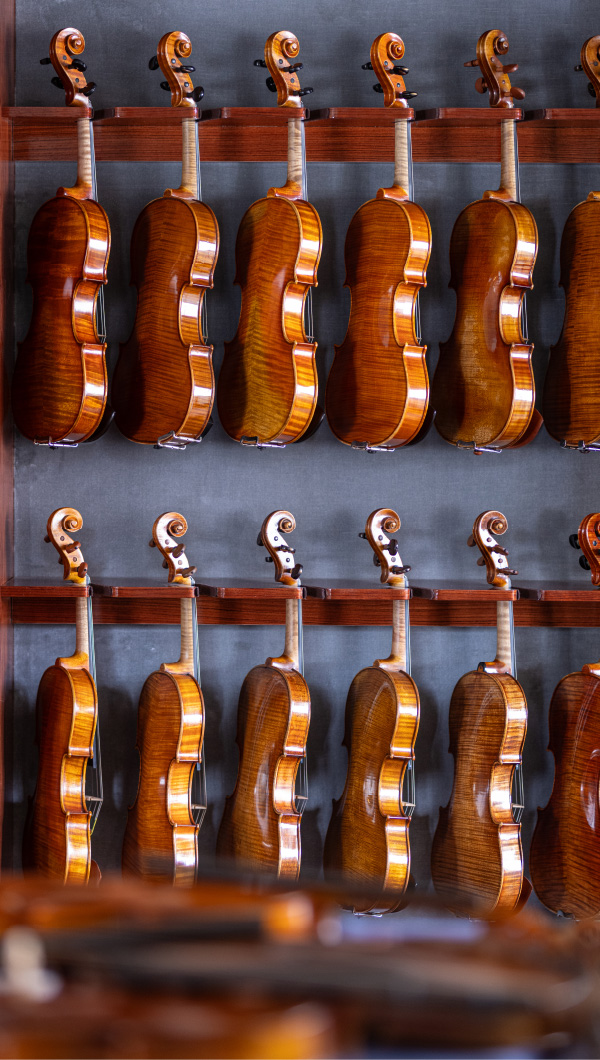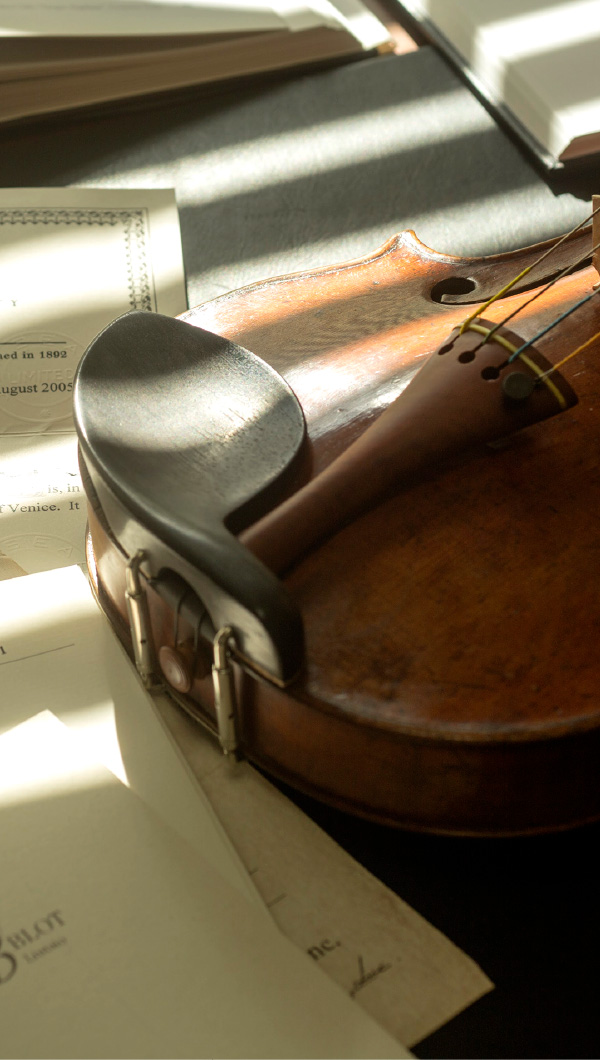Nippon Violin Society

Nippon Violin began its journey as an instrument dealer in 1980. Since 1990, alongside instrument sales, we have been connecting owners of valuable instruments with top-tier musicians and promising young artists from Japan and abroad. In 2007, we established the Nippon Violin Society within our company to actively facilitate the lending of instruments entrusted to us by their owners to musicians.
The number of old violins is finite, and with strong demand, their prices have soared, making it almost impossible for even top musicians to purchase them individually. Without patrons, musicians cannot play these old violins, which are treasures of humanity. Nippon Violin’s ultimate role is to ensure that these supreme instruments, passed down through generations, are not left unused but played by the musicians who need them most today. The Nippon Violin Society currently facilitates the lending of over 60 violins owned by our patrons to musicians.
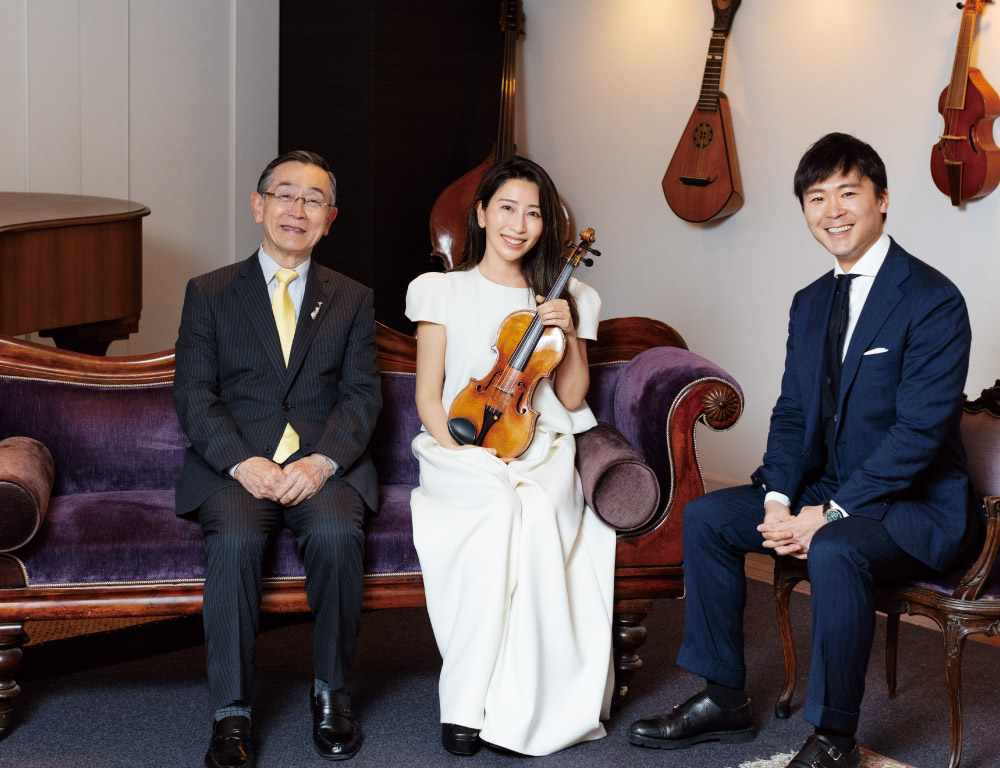
Patron: Tokuji Munetsugu
Musician: Mayu Kishima
Nippon Violin: Sota Nakazawa
Tokuji Munetsugu
Director of NPO Yellow Angel
Founder of Curry House CoCo Ichibanya
My love for classical music began in my first year of high school when I happened to watch “NHK Symphony Hour” on TV. However, once I started working, I rarely had the chance to engage with it. Upon retiring, I was invited to a concert by Ryu Goto, which reignited my appreciation for classical music, leading to my current activities. I heard Goto was looking for a good instrument and purchased a Stradivari in New York. Without ever handling it myself, I entrusted it to Goto, who played it for some time. That marked the beginning of a recurring process: finding an excellent instrument, matching it with a deserving musician, and purchasing it if the timing was right. I honestly don’t know exactly how many instruments I currently own, but all are lent to musicians through Nippon Violin. Instruments only have meaning when played by the right person; leaving them as decorations serves no purpose. I continue this activity with the hope that more people will enjoy classical music.
Mayu Kishima Violinist
Current Instrument
Antonio Stradivari 1699 “Ex-Walner”
The instrument I currently play was lent to me by Mr. Munetsugu in 2019. When my previous instrument loan ended, I was searching for a replacement, and Mr. Nakazawa of Nippon Violin introduced me to this violin, asking, “How about this one?” Being slightly smaller, it was a perfect fit for my small hands, but it also felt right in every other aspect. After being introduced to Mr. Munetsugu, I was fortunate enough to receive this instrument. For me, meeting the right instrument constitutes 80% of creating my sound, with the remaining 20% achieved through daily practice. This violin had not been played for decades before it came to me, so it took time to bring out its true voice. However, I was able to nurture its dormant tones into a full bloom that represents my own sound. A Stradivarius produces sounds beyond imagination—extraordinary tones that transport me to another realm. I am always grateful for the incredible support I have received in using this instrument in the best possible way.
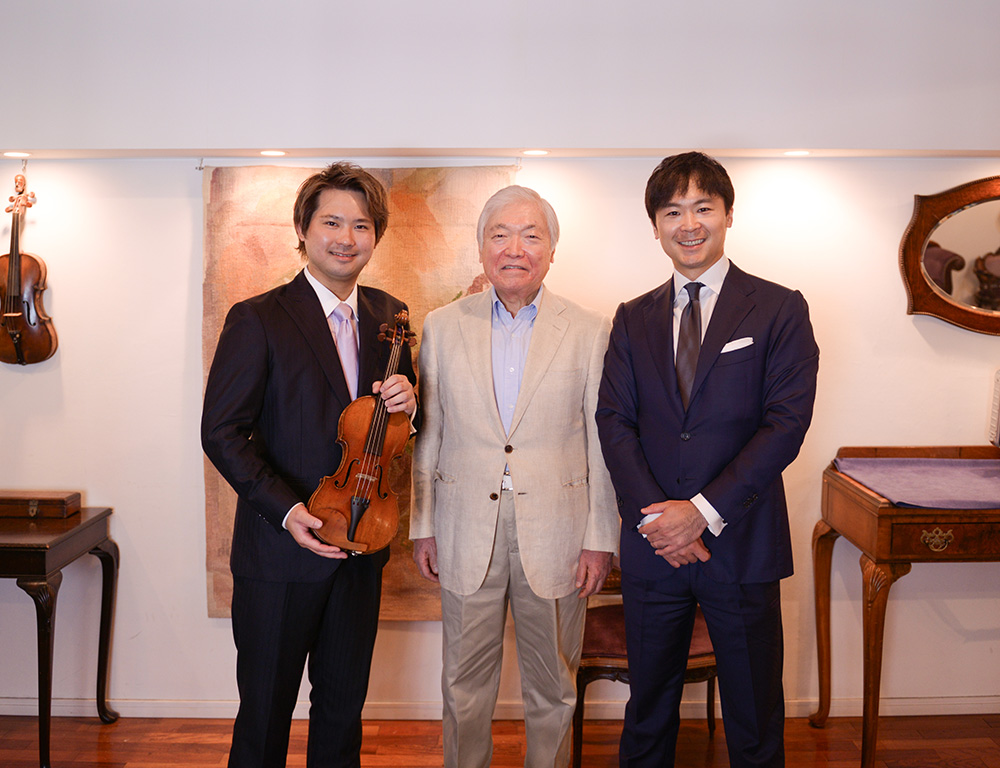
Patron: Hikaru Shimura
Musician: Fumiaki Miura
Nippon Violin: Sota Nakazawa
Hikaru Shimura
CEO, Crystco Co., Ltd.
When I was in elementary school, my mother, who loved classical music, encouraged me to learn piano and violin, but I didn’t continue for long. Although I enjoyed music across genres, including classical, I never became deeply immersed in it. It wasn’t until my 60s that I became deeply involved in the world of classical music. About ten years ago, I was asked to provide financial support for the Lupon International Music Festival, where Daishin Kashimoto of the Berlin Philharmonic served as music director. After becoming close with Mr. Kashimoto, he mentioned that he wanted to play a Guarneri del Gesù, which made me consider the concept of lending instruments for the first time. It took me several months to make a final decision. I don’t buy violins as investments. Only when a deserving musician expresses a strong desire to play a particular violin do I consider lending it. If this results in creating great music and increasing the enjoyment of classical music among more people, I consider it a worthwhile use of money. Through Nippon Violin, I have also had Fumiaki Miura play a Guarneri del Gesù, and I am willing to consider similar opportunities in the future.
Fumiaki Miura Violinist
Current Instrument
Giuseppe Guarneri ‘del Gesù’ 1732 "Kaston"
My encounter with the 1732 Guarneri del Gesù, “Kaston,” was a revelation. For many years, I had been playing a 1704 Stradivarius, but one day, Mr. Nakazawa of Nippon Violin mentioned that an extraordinary del Gesù had arrived and asked if I would like to try it. Having been devoted to Stradivari, I initially approached it with a light heart, but it turned out to be destiny. From the very first note, it resonated like my own voice. While Stradivari violins have their characteristic sound that requires crafting into the desired tone, this del Gesù produced my ideal sound effortlessly from the start. It’s a sound that cannot be simply described as bright or deep; it’s profoundly personal and intimate. From that moment, my mind and heart were consumed with the thought of playing this violin. Thanks to the support of Mr. Nakazawa and the generosity of Mr. Hikaru Shimura, who loves music and supports the musical world, this violin was purchased for me and lent to me. Every day with this incredible partner brings me happiness, and I feel immense gratitude for this miraculous encounter. I look forward to sharing the sound of this violin with audiences in concert halls around the world.
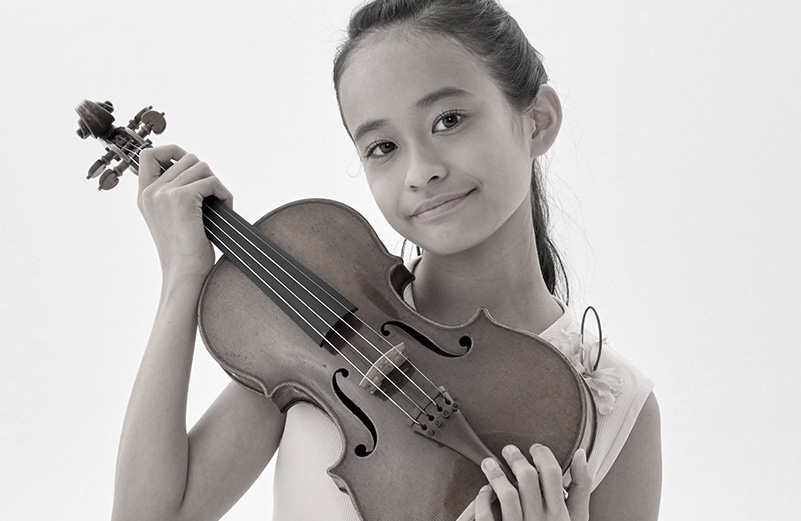
HIMARI Violinist
Current Instrument
Antonio Stradivari 1717 “Hamma”
Since January 2023, I have been playing the instrument I was lent. Initially, I was uncertain if I could manage such a large-sized violin, but the sound I heard resonated with the tones of the legendary virtuosos I had admired. Every time I play it, I feel as if I am transported back in time. The violin is an instrument that closely resembles the human voice. I hope to share the beautiful overtones and portamento produced by this masterpiece with audiences worldwide, bringing to life the works left by composers and great violinists. I am deeply grateful for the opportunity given to me to achieve this.
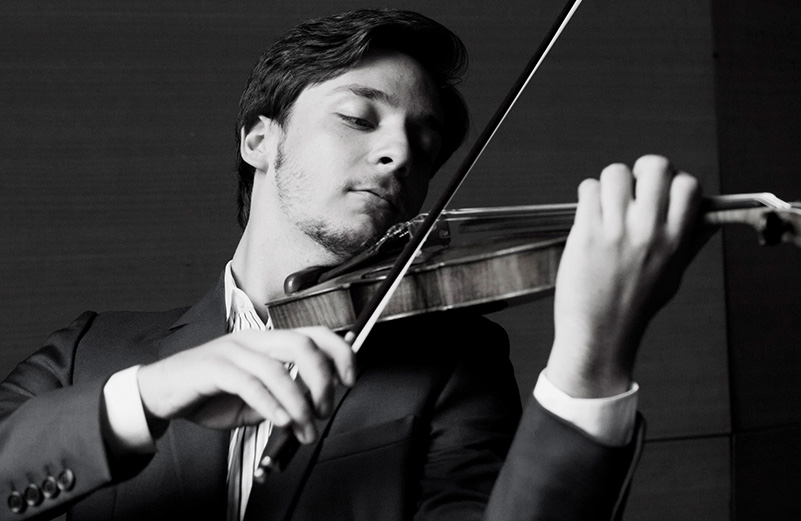
Andrea Obiso Violinist
Current Instrument
Giuseppe Guarneri 'del Gesu' 1741
In the course of my musical life I have always considered myself a lucky boy when my parents let me start playing a musical instrument. It’s not to be taken for granted that one family alone can support the development of their children once they noticed I had a special hearing ability.
But never I would have thought to be so lucky in my life for having had the chance to meet the Munetsugu family and Nippon VIolin Tokyo.
I had never experienced, after my parents, the infinite generousity and humanity with which they have enlighten my path as a musical artisan.
Being given the possibility of playing on a Guarneri Del Gesù, of growing with the instrument, of competing in the most prestigious competitions and performing in the most famous concert halls in the world is the magic for which these instruments were born and the goal that every artist would want to pursue.
One promise was sworn that day towards myself and the instrument: that together we are going to give all the music and share it to everybody and every culture in this world.
My family and I are so gratefull and feel blessed by their generosity and their legacy will always stay alive through the same love that have inspired us.
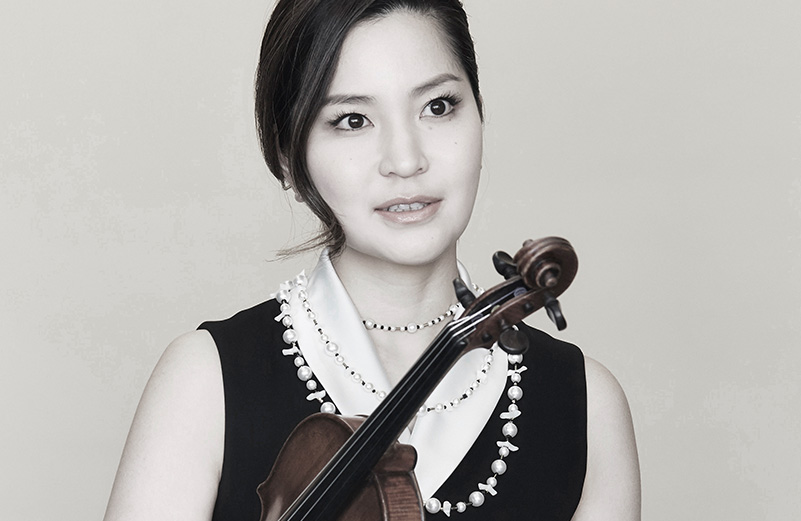
Mayuko Kamio Violinist
Current Instrument
Antonio Stradivari 1731 “Rubinoff”
The instrument I currently play is a Stradivarius lent to me from the Munetsugu Collection since 2019. When the loan period of the instrument I had been using in the United States ended, Mr. Nakazawa introduced me to Mr. Munetsugu. Before this, I had the fortune of playing several Stradivariuses, and as their reputation for being “temperamental” suggests, many of them had unpredictable sounds and were challenging to play. However, from the very first note, this instrument astonished me with its fully-engaged, powerful sound. Nippon Violin has supported me in various ways since then, and I find their instruments to be consistently well-maintained and adjusted. Regardless of the instrument’s class, they all possess remarkable tonal quality. I believe this is due to their ability to procure excellent instruments and their meticulous adjustment skills. I am deeply grateful for their unwavering support.
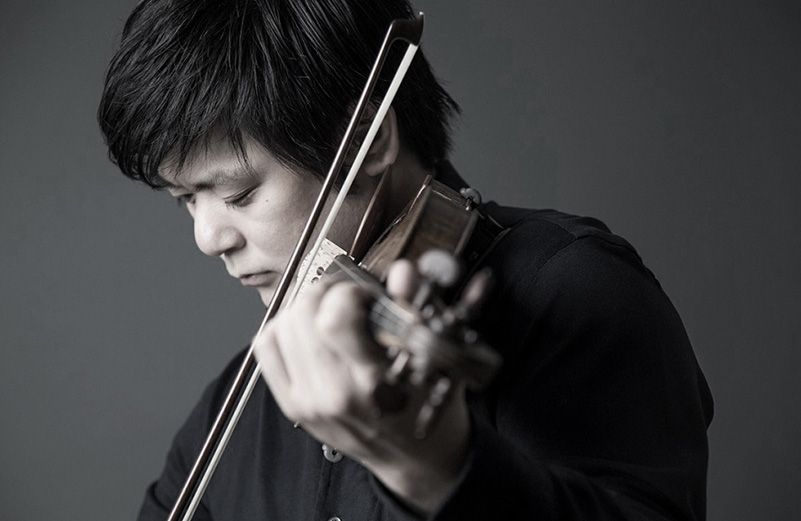
Daishin Kashimoto Violinist
Current Instrument
Giuseppe Guarneri ‘del Gesu’ 1744 “de Beriot”
For the past three years, I have been playing the 1744 Guarneri del Gesù “de Beriot,” lent to me by Crisco Co., Ltd. (CEO Hikaru Shimura). Encountering and being able to perform on this magnificent instrument is an immense joy, and the “de Beriot” has become an indispensable partner in my musical career. I am deeply grateful to Nippon Violin for their invaluable assistance in handling various procedures, enabling me to travel the world and perform seamlessly with this instrument.
Introduction of Prestigious Instruments
All instruments handled by Nippon Violin meet our rigorous selection criteria. These include masterpieces such as Stradivari and Guarneri del Gesù, which are lent to carefully selected musicians. We also manage these instruments with the utmost care, as they are valuable assets for their owners.
Storage, Management, and Maintenance After Lending
Instruments should always be stored in optimal conditions. At Nippon Violin, we provide dedicated storage facilities where humidity and temperature are carefully controlled. Additionally, we perform regular maintenance to ensure the instruments remain in top playing condition after lending. We work closely with musicians to promptly carry out any necessary adjustments or repairs.
Lending to Musicians
Musicians eligible for lending are selected through auditions or recommendations. Selection criteria include not only their performance skills but also their understanding and handling of instruments. When lending an instrument, we sign a usage agreement to ensure proper use of the instrument.
Communication Management with Musicians
We value close communication with musicians even after lending instruments. We regularly check the condition and usage of the instruments and provide necessary support. Additionally, we build trust with musicians by sharing concert information and supporting promotional activities.
Hosting Lending Ceremonies
When a lending decision is made, we host a lending ceremony attended by the owner, the musician, and Nippon Violin representatives. During this event, the history and characteristics of the instrument are shared, allowing the musician to gain a deeper understanding of the significance of using the instrument.


